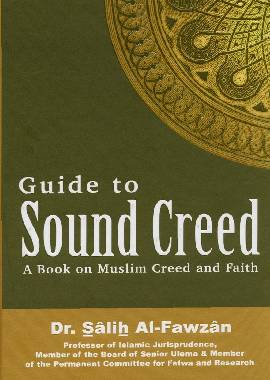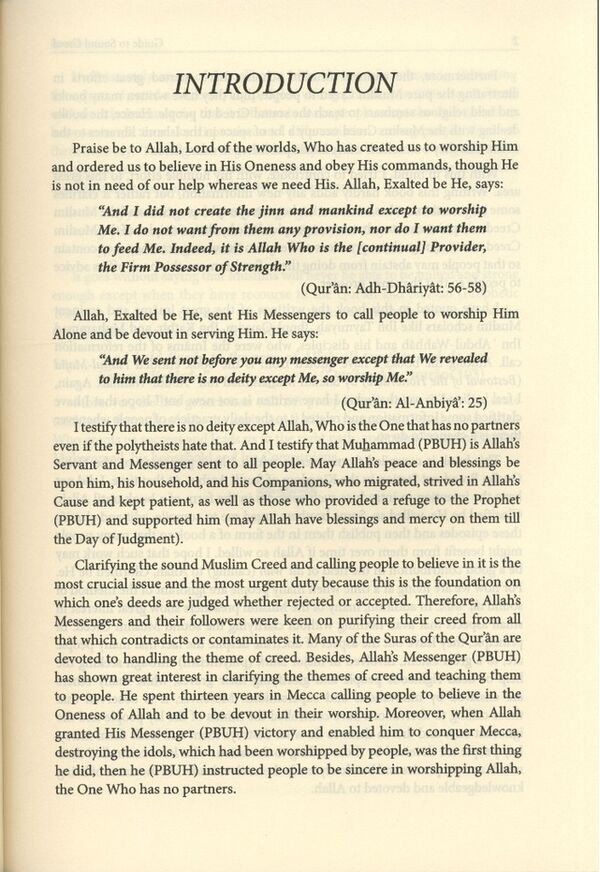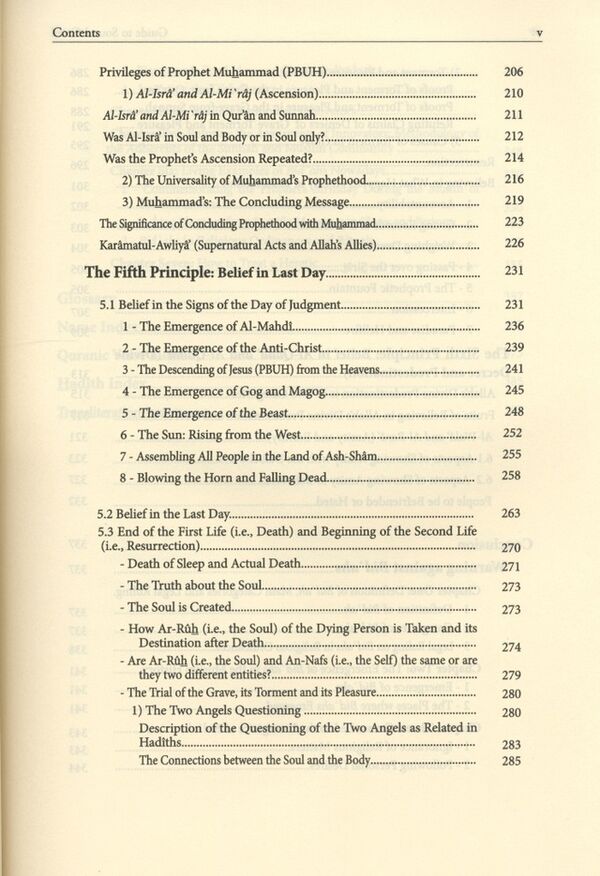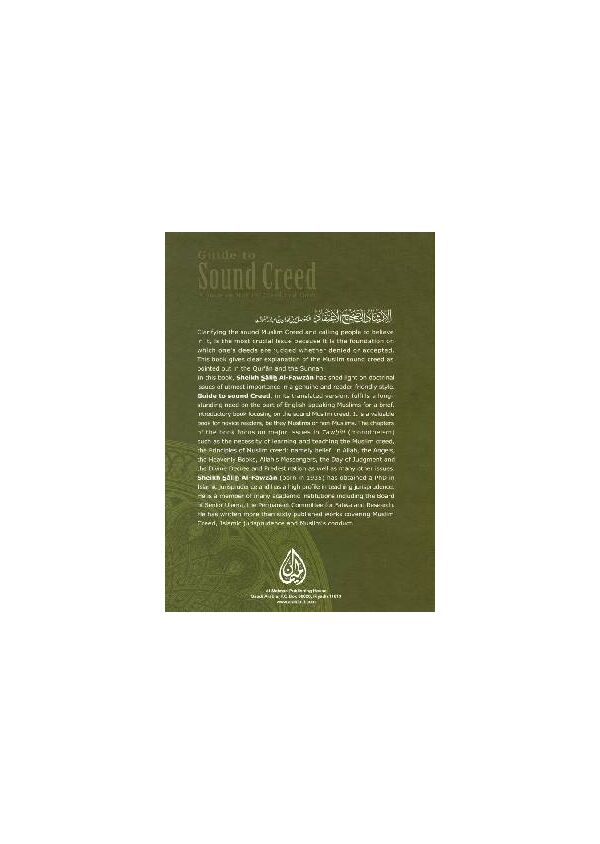Description
Overview:
Clarifying the sound Muslim Creed and calling people to believe in it, is the most crucial issue because it is the foundation on which one's deeds are judged whether denied or accepted.
This book gives clear explanation of the Muslim sound creed as pointed out in the Quran and Sunnah. In this book, Dr. Salih al Fawzan has shed light on doctrinal issues of utmost importance in a genuine and reader-friendly style. Guide to Sound Creed, in its translated version, fulfills a long introductory book focusing on the English-speaking Muslims for a brief, introductory book focusing on the sound Muslim creed.
It is a valuable book for novice readers, be they Muslims or non-Muslims. The chapters of the book focus on major issues in Tawhid (monotheism) such as the necessity of learning and teaching the Muslim creed, the principles of Muslim creed; namely belief in Allah, the Angels, the Heavenly Books, Allah’s Messengers, the Day of Judgment, and the Divine Decree and Predestination as well as many other issues.
Key Features:
Authentic Creed: Focuses on the authentic Muslim creed derived from the Quran and Sunnah.
Foundational Doctrinal Topics: Covers the essentials of Tawhid and pillars of faith, including belief in Allah, Angels, Scriptures, Prophets, the Day of Judgment, and Divine Decree.
Interesting and easy language: Written in simple language suitable for both Muslims and non-Muslims, beginners, or students of knowledge.
Concise yet Clear: Acts as a concise, introductory guide for understanding Islamic monotheism.
Practical and Educational: Emphasizes the importance of learning and teaching the correct Muslim belief system.
Authentic Sources: Backed by references to the Quran, Hadith, and scholarly consensus.
This book serves as a foundational guide for those seeking clarity on the Muslim creed, making it ideal for novice readers and anyone eager to understand the basics of Islamic faith.
Author Bio:
Dr. Salih al Fawzan (born in 1935) has obtained a PhD in Islamic jurisprudence and has a high profile in teaching jurisprudence. He is a member of many academic institutions including the Board of Senior Ulema, the Permanent Committee for Fatwa and Research. He has written more than sixty published works covering Muslim Creed, Islamic jurisprudence and Muslim’s conduct.
Reviews
No reviews found











